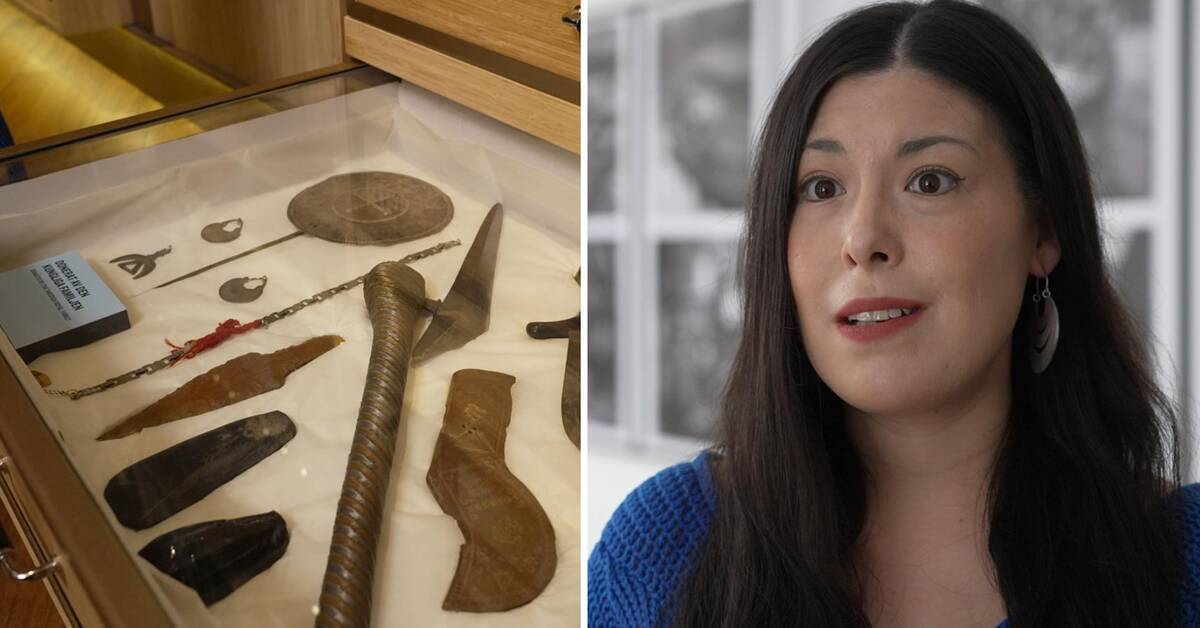Amanda Calbucura Marklund is a crochet designer and creates, among other things, traditional patterns inspired by her foremothers, who also handcrafted with the textile.
The Museum of Ethnography has several objects that she is inspired by, but she criticizes that in many cases the museum only prints the colonial story around the objects.
"For me as an indigenous designer, the Museum of Ethnography is an exciting place to be. But it also stirs up emotions and seeing how the objects – which have a direct connection to me and my origin – are actually treated," says Amanda Calbucura Marklund.
"It's hurtful"
Among other things, they write that the Mapuche people's objects come from "Araukans" which is the Spanish colonizers' term, which Amanda Calbucura Marklund believes is outrageous.
"It's hurtful to be called by names that maintain the colonial structures against us to this day. I think the objects deserve to be described with the power that they actually have.
Agree with the criticism
Anna Lundström, acting head of department for content and learning at the Museums of World Culture, writes in an email to Kulturnyheterna that when it comes to designations, it is not always clear - but that they agree with the criticism and that "a thorough decolonization work is underway".
The change work takes place in dialogue with representatives of the indigenous peoples represented in the collections and exhibitions. It is a work that takes time as it is done through solid research, according to the museum.
"We need to find ways to provide insights into this work in a pedagogical way, that provides in-depth knowledge instead of simplifying or trivializing and telling about the research we conduct. Not infrequently, these issues are linked to repatriation cases and to our ongoing provenance research."

